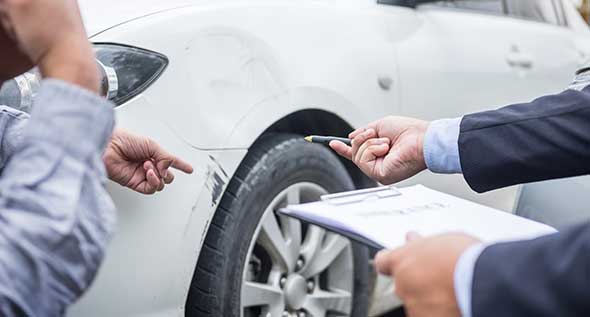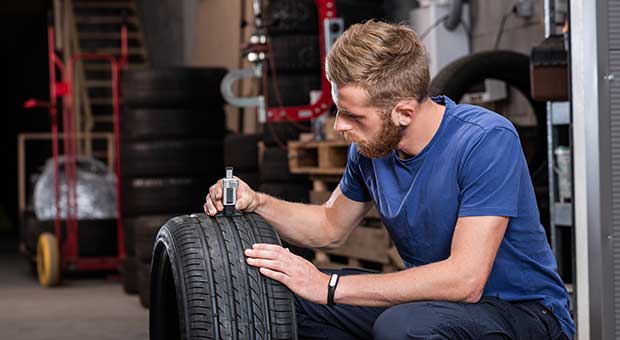August 7, 2024
Sara Davies
Articles
How Often Should You Be Inspecting Your Fleet?
Regardless of the size and function of your fleet, inspecting vehicles forms an important part of your duty of care. While certain vehicle checks are the responsibility of drivers, fleet managers still have a great deal of responsibility for the safety of the fleet. It is crucial to understand all aspects of fleet inspections, particularly what to inspect - and when.
Why Are Fleet Inspections Important?
- Maintain Fleet Safety – Fleet inspections undertaken regularly ensure the continuous operation of your vehicles, minimising the likelihood of major issues, helping keep your drivers and other motorists safe.
- Reduce Fleet Costs – By keeping check on a vehicle’s day-to-day condition, early intervention is made possible before things reach the point of a vehicle breakdown, saving the associated expense and downtime of your employees.
- Increase Fleet Lifespans – Alongside preventive maintenance, fleet inspections are one of the best tools for detecting early issues before they result in a vehicle with a curtailed lifespan.
- Meet Compliance Obligations – Employers are legally responsible for ensuring work equipment including vehicles, is in good working order. Driver vehicle maintenance checks, (VMCs), services, MOTs and fleet inspections will ensure these obligations are met.
- Avoid Unplanned Downtime – When regular inspections are prioritised, the likelihood of unexpected issues with vehicles is reduced.
Who is Responsible for Fleet Inspections?
Although much of the day-to-day responsibility for completing vehicle checks lies with the driver of a company vehicle, it falls on the whole business to ensure that inspections are valued and maintained.
A great deal of responsibility falls on fleet managers to make sure that inspections are being carried out.
What Is the Fleet Manager’s Responsibility?
When it comes to fleet inspections, it is the fleet manager’s responsibility to:
- Set and enforce the standard for inspections
- Select what is included within the inspection checklist
- Maintain a log of all inspections
- Create a system for logging inspection issues and necessary repair works
- Follow up on failed inspection reports
- Schedule regular whole fleet inspections by trained technicians
- Ensure the fleet is maintained in accordance with the manufacturer’s and funder’s guidelines, including MOTs and servicing schedules.

What Is the Driver’s Responsibility?
When it comes to vehicle inspections, it is the driver’s responsibility to conduct regular vehicle maintenance checks (VMCs) in accordance with the company fleet vehicle schedule. This will often include the following checks:
- Tyre tread and pressure
- Working order of lights
- Levels of fluids
- Windscreen chips and cracks
- Wiper condition
- Battery
- Engine air / oil filters (if not checked as part of service)
- Warning lights
In addition, drivers need to ensure the car is kept clean to avoid marks that may damage paintwork and that fuel is kept above a quarter of a tank where possible, preventing damage due to sediment.
Wessex Fleet can help streamline this process by managing the work based on the feedback from the VMCs. For more information on VMCs read our detailed guide here.

How Often Should Driver Inspections Be Conducted?
There are different levels of inspections that can be conducted depending on the length and types of trip undertaken. Checks on the basic features of a vehicle should be dictated on a frequency defined by mileage undertaken, and may be weekly, fortnightly or monthly. Some firms will specify checks before or after every trip, including checks on damage to the body, proper function of lights, steering, mirrors and brakes, tyre condition, hoses and caps and fluid leaks.
There are strict rules for certain vehicle types, such as goods vehicles. This includes a statutory duty for drivers to carry out a walk-around check every time before using an HGV or PSV vehicle.
More information can be found regarding the maintenance requirements for such vehicles here.
It is crucial to seek out information regarding your industry standard.
How Often Should Fleet Inspections Be Conducted?
How often vehicles should be checked by someone other than the driver, depends again on the mileage covered by the vehicle and the type of vehicle being assessed, as well as any mandatory regulations for certain vehicle types.
Monthly inspection may be appropriate for many businesses. A monthly inspection would be advisable to check the function of lights, steering, mirrors, and brakes, leaks or undue wear and tear. Issues that require immediate attention or scheduled repair should also be checked.
A quarterly inspection in addition to the above, could include hoses, brackets, filters, brakes, and lubricants, with a twice yearly inspection to closely assess all previously reported issues addressed and consider any vehicle replacement timelines.
What Wessex Fleet Can Offer:
A Full Maintenance Package
This is an additional option that covers the essential maintenance work, servicing and MOTs for the duration of your lease. It can be purchased for fleets that we haven’t supplied as well as those we have. What is and isn’t covered within a maintenance package varies between funders. Some maintenance packages also include breakdown assistance, others offer this as an additional extra.
At Wessex Fleet we also provide our own maintenance services for customers who would like us to deal with all aspects of their maintenance, including:
- Regular online driver checks
- A complete fleet audit trail
- 24 hour driver assistance for all maintenance requirements
- Immediate access to the best service providers and vehicle repair centres
- Vehicle collection, servicing and returns for minimal disruption to your drivers’ days
- Fully online straightforward booking system
- Highly competitive pricing
Find out more information here.
MOTs for Business Vehicles
If you have vehicles that are older than three years old they will need to pass an MOT annually. As part of our fleet management services, we can keep a track of the MOT dates for every vehicle in your fleet and ensure that they get through their MOT testing and any necessary repairs are completed.
Accident Management and Breakdown Assistance
We are able to provide you with breakdown assistance for all cars, vans and vehicles on your fleet, including 24 hour call out 365 days a year. If drivers require onwards travel we can also arrange this for them as part of our fast and efficient service to get them back on the road as quickly as possible.
Replacement Tyres and Glass
We can arrange replacement tyres and glass whenever a vehicle needs them. We work with national providers across the country to ensure we can provide you with a quick and efficient service, and can arrange mobile tyre and glass fitting at your drivers’ convenience.
Enjoyed this article? Read more of our latest blogs below:
- 5 Checks When You Get a Company Car
- How Fleet Driver Training Saves Money
- 8 Things To Know About Car Sharing
- Driving Fines in a Company Car
For all our latest news and blogs click HERE.
Or are you looking to understand the company car, fleet management or any other aspect of fleet vehicles? If so, then check out our Guide Pages.
